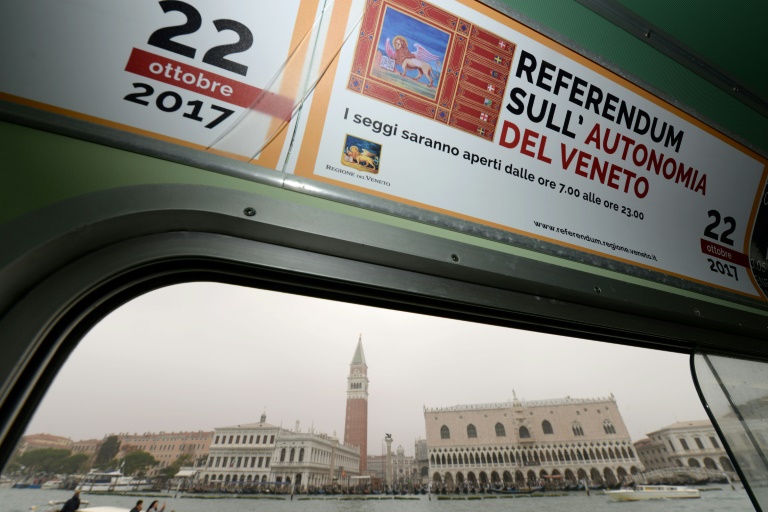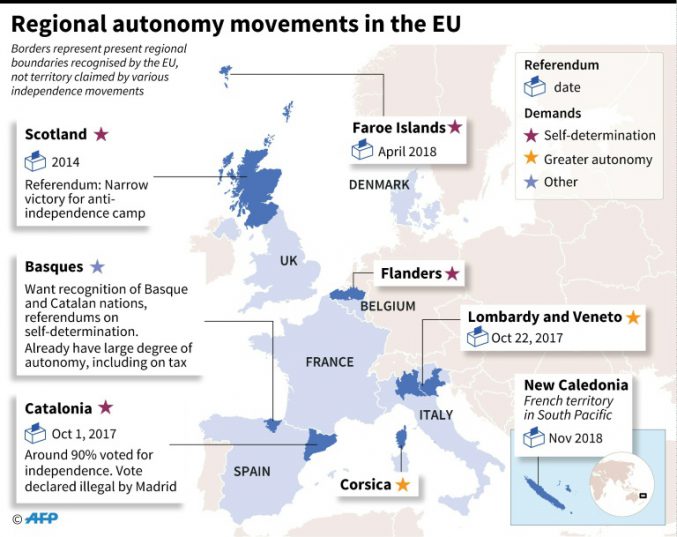Manie Libbok to ‘leave’ Stormers to play in Japan — report
Over 95 percent of voters who flocked to the polls in the northern regions of Veneto and Lombardy, home to Venice and Milan respectively, supported a mandate to negotiate a better deal with the Italian capital.
Turnout was higher than expected in the referendums held Sunday, and the results should not be underestimated in the context of the crisis created by Catalonia’s push for independence, analysts warned.
Voter participation was 57 percent in Veneto and almost 39 percent in Lombardy.
Both regions are run by the Northern League (LN) party, which was once openly secessionist but has lately shifted its focus to run on an anti-euro ticket in the hope of expanding its influence into the south.
The consultative votes are only the beginning of a process which could eventually lead to powers being devolved from Rome.
The leaders of the two regions, which contribute up to 30 percent of Italy’s GDP, will now embark on negotiations with the central government on the devolution of powers and tax revenues.
Once the terms are agreed, they will need a green light from parliament in a process that could take up to a year.
– ‘Five million voted for change’ –
Veneto leader Luca Zaia said the regional council, which was meeting Monday, was aiming to get Rome to agree it could keep ninety percent of taxes levied, rather than handing them over to a capital it has long accused of waste.

Sign of the times: The view last week from the Gran Canal in Venice with St Mark’s Square in the background
“More than five million people voted for change. We all want less waste, fewer taxes, less bureaucracy, fewer state and EU constraints, more efficiency, more employment and more security,” said LN head Matteo Salvini.
“We have given the whole of Europe a lesson in democracy. We have chosen the legal, peaceful, constitutional path,” he said in reference to the Catalogna vote, which clashed with Spain’s constitution.
Salvini said the party was committed to winning greater autonomy for all regions up and down the country.
The anti-establishment Five Star Movement (M5S), which is currently leading voter intention polls for next year’s national elections, was quick to insist the result was “a citizen victory, certain not a Northern League one”.
– ‘Europe closing in on itself’ –
Secessionist sentiment in Veneto and Lombardy is restricted to fringe groups but analysts see the autonomy drive as reflecting the same cocktail of issues and pressures that resulted in Scotland’s narrowly-defeated independence vote, Britain’s decision to leave the EU and the Catalan crisis.

The votes in Italy reflect a wider drive for regional autonomy in Europe
“Lombardy is not Catalonia, nor indeed is Veneto, but the revival of the autonomist flame here takes place in a Europe which tends towards fragmentation and closing in on itself,” Italian political commentator Stefano Folli said.
Economist Lorenzo Codogno, a former senior official in the finance ministry, said the ‘Yes’ victory would likely “add to the sense of uneasiness in Europe”.
“Following the populist wave, now Europe has also to face a nationalist/regionalist wave, which somewhat overlaps with the populist one, and makes European integration even more difficult,” he added.
And Folli evoked the fear in Italy that the results, which “captured a growing divide between the North and South”, could aggravate deeply rooted antipathies that predate the country’s unification in the 19th century.
Download our app